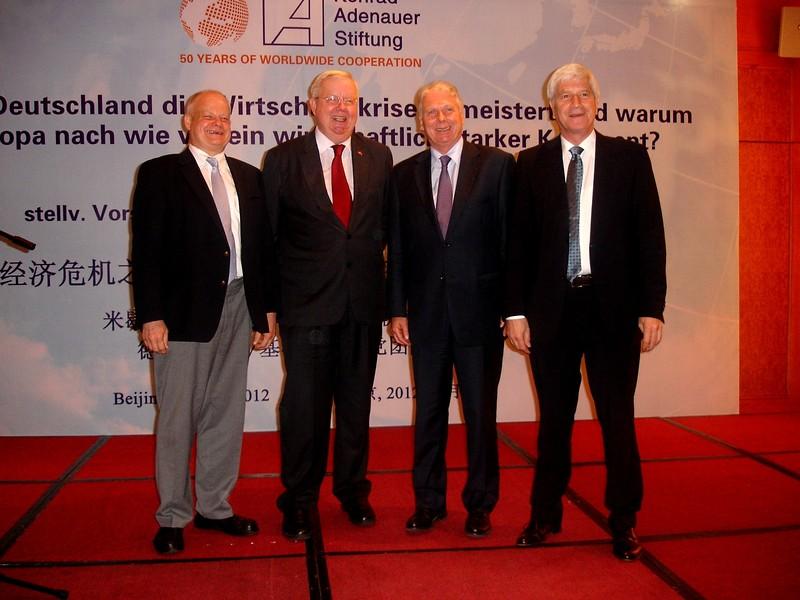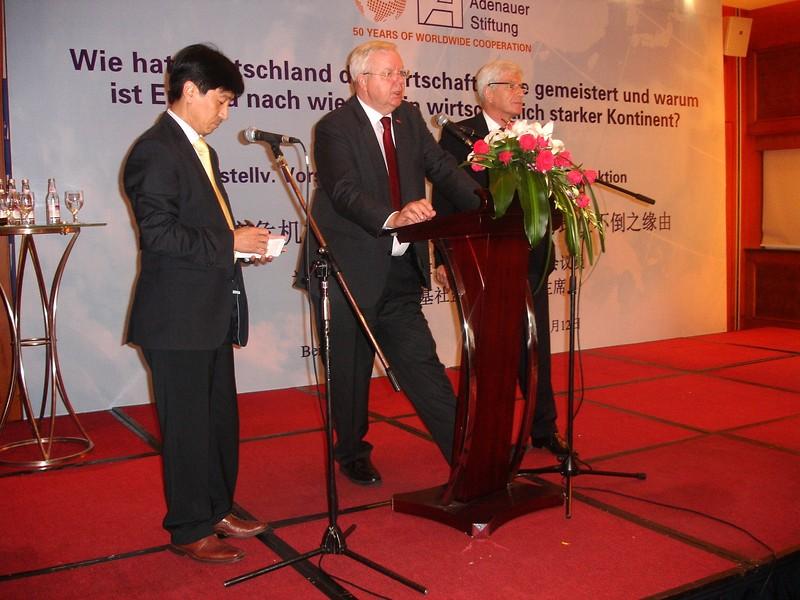Event reports
The world economy is in a phase of transition. In times of fundamental changes in the global economic order, the world has to face new challenges, such as the rise of new economies, increasing state debts and decreasing demand.
Dr. Fuchs, MdB, illustrated with a few case studies why he considered Europe’s situation optimistically. He explained the current economic situation of the so-called ‘PIGS’ countries, Portugal, Ireland, Greece and Spain, which find themselves in acute debt crises. The competitiveness of a country on the market is an indispensable factor for its successfulness of dealing with problems. While some EU-states found themselves in the financial crisis due to inefficient policies, other countries’ economic problems are much more complex, and may only be solved by leaving the Euro zone.
Dr. Fuchs used Italy as an example to express his optimism towards Europe’s future. Presently, Italians save more money than Germans, and their economy is still deeply embedded on the European market. If Italy will introduce and stick to drastic reforms on its labour market, then its debt is likely to steadily decrease in the long-term.
According to Dr. Fuchs, Germany’s future looks promising. This is due to a number of factors, such as its innovation and export-oriented economy. Furthermore, German companies continue to attract investments because of their reputation of being stable at all times.
Dr. Fuchs also introduced his wish for EU states to share similar policies in labour market, and in the social security nets, in order to create better harmony. As such, tensions betweens countries could be solved and also the readiness to support each other in times of difficulty would increase. At the present, there is an increasing number of indications that Europe can master the economic crisis.







